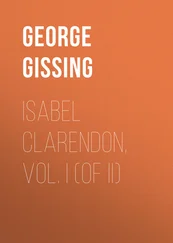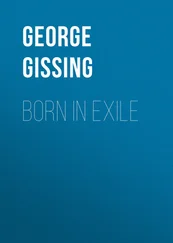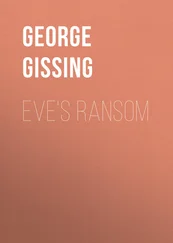George Gissing - Thyrza
Здесь есть возможность читать онлайн «George Gissing - Thyrza» — ознакомительный отрывок электронной книги совершенно бесплатно, а после прочтения отрывка купить полную версию. В некоторых случаях можно слушать аудио, скачать через торрент в формате fb2 и присутствует краткое содержание. Жанр: foreign_prose, literature_19, foreign_antique, на английском языке. Описание произведения, (предисловие) а так же отзывы посетителей доступны на портале библиотеки ЛибКат.
- Название:Thyrza
- Автор:
- Жанр:
- Год:неизвестен
- ISBN:нет данных
- Рейтинг книги:3 / 5. Голосов: 1
-
Избранное:Добавить в избранное
- Отзывы:
-
Ваша оценка:
- 60
- 1
- 2
- 3
- 4
- 5
Thyrza: краткое содержание, описание и аннотация
Предлагаем к чтению аннотацию, описание, краткое содержание или предисловие (зависит от того, что написал сам автор книги «Thyrza»). Если вы не нашли необходимую информацию о книге — напишите в комментариях, мы постараемся отыскать её.
Thyrza — читать онлайн ознакомительный отрывок
Ниже представлен текст книги, разбитый по страницам. Система сохранения места последней прочитанной страницы, позволяет с удобством читать онлайн бесплатно книгу «Thyrza», без необходимости каждый раз заново искать на чём Вы остановились. Поставьте закладку, и сможете в любой момент перейти на страницу, на которой закончили чтение.
Интервал:
Закладка:
The real home which he remembered was a house looking upon Clapham Common. His father dwelt there for the last fifteen years of his life; his mother died there, shortly after the removal from the small house in Newington where she went to live upon her marriage. With much tenderness Egremont thought of the clear-headed and warm-hearted man whose life-long toil had made such provision for the son he loved. Uneducated, homely, narrow enough in much of his thinking, the manufacturer of oil-cloth must have had singular possibilities in his nature to renew himself in a youth so apt for modern culture as Walter was; thinking back in his maturity, the latter remembered many a noteworthy trait in his father, and wished the old man could have lived yet a few more years to see his son's work really beginning. And Egremont often felt lonely. Possibly he had relatives living, but he knew of none; in any case they could not now be of real account to him. The country of his birth was far behind him; how far, he had recognised since he began his lecturing in Lambeth. None the less, he at times knew home-sickness: not seldom there seemed to be a gap between him and the people born to refinement who were his associates, his friends. That phase of feeling was rather strong in him just now; disguising itself in the form of sundry plausible motives, it had induced him to decline Mrs. Tyrrell's invitation, and was fostering his temporary distaste for the society in which he had always found much pleasure. What if in strictness he belonged to neither sphere? What if his life were to be a struggle between inherited sympathies and the affinities of his intellect? All the better, perchance, for his prospect of usefulness; he stood as a mediator between two sections of society. But for his private happiness, how?
He spent this evening very idly, sometimes pacing his large, uncomfortable room, sometimes endeavouring to read one or other of certain volumes new from the circulating library. Of late he had passed many such evenings, for it was very seldom that any one came to see him, and for the amusements of the town he had no inclination. He was thinking much of Annabel; he could not imagine her other than calm, intellectual; he could not hear her voice uttering passionate words. A great change must come over her before her reserved maidenliness could soften to such sweet humility.
And he had no faith in his power so to change her.
The next day was Thursday. This and Sunday were his lecture days; his class met at half-past eight. Precisely at that hour he reached a small doorway in High Street, Lambeth, and ascended a flight of stairs to a room which he had furnished as he deemed most suitable. Several rows of school-desks faced a high desk at which he stood to lecture. The walls were washed in distemper, the boarding of the floor was uncovered, the two windows were hidden with plain shutters. The room had formerly been used for purposes of storage by a glass and china merchant; below was the workshop of a saddler, which explained the pervading odour of leather.
A little group of men stood in conversation near the fire; on Egremont's appearance they seated themselves at the desks, each producing a note-book which he laid open before him. Thus ranged they were seen to be eight in number. Out of fourteen to whom invitations were addressed, nine had presented themselves at the preliminary meeting; one, we know, had since proved unfaithful. Egremont looked round for Ackroyd on entering, but the young man was not here.
On the front bench were two men whom as yet you know only by name. Mr. Bower was clearly distinguishable by his personal importance and the ennui , not to be disguised, with which he listened to the opening sentences of the lecture. He leaned against the desk behind him, and carefully sharpened the point of his pencil. He was a large man with a spade-shaped beard; his forehead was narrow, and owed its appearance of height to incipient baldness; his eyes were small and shrewd. He habitually donned his suit of black for these meetings. At the works, where he held a foreman's position, he was in good repute: for years he had proved himself skilful, steady, abundantly respectful to his employers. In private life he enjoyed the fame of a petty capitalist; since his marriage, thirty years ago, he and his wife had made it the end of their existence to put by money, with the result that his obsequiousness when at work was balanced by the blustering independence of his leisure hours. The man was a fair instance of the way in which prosperity affects the average proletarian; all his better qualities—honesty, perseverance, sobriety—took an ignoble colour from the essential vulgarity of his nature, which would never have so offensively declared itself if ill fortune had kept him anxious about his daily bread. Formerly Egremont had been impressed by his intelligent manner; closer observation had proved to him of how little worth this intelligence was, in its subordination to a paltry character. Bower regarded himself as the originator of this course of lectures; through all his obsequiousness it was easy to see that he deemed his co-operation indispensable to the success of the project. At first, as was natural, Egremont had sometimes seemed to address words specially to him; of late he had purposely avoided doing so, and Bower began to feel that his services lacked recognition.
The other, of whom there has been casual mention, was Joseph Bunce. Of spare frame and with hollow cheeks which suggested insufficiency of diet, he yet had far more of manliness in his appearance than the portly Bower. You divined in him independence enough, and of worthier origin than that which secretly inflated his neighbour. His features were at first sight by no means pleasing; their coarseness was undeniable, but familiarity revealed a sensitive significance in the irregular nose, the prominent lips, the small chin and long throat. Egremont had now and then caught a light in his eyes which was warranty for more than his rough tongue could shape into words. He often appeared to have a difficulty in following the lecture; would shrug nervously, and knit his brows and mutter. Whenever he noticed that, Egremont would pause a little and repeat in simpler form what he had been saying, with the satisfactory result that Bunce showed a clearer face and jotted something on his dirty note-book with his stumpy pencil.
Gilbert Grail we know. It was impossible not to remark him as the one who followed with most consecutive understanding, even if his countenance had not declared him of higher grade than any of those among whom he sat. It had needed only the first ten minutes of the first lecture to put him at his ease with regard to Egremont's claims to stand forward as a teacher; the preliminary meeting, indeed, had removed the suspicions suggested by Ackroyd. To him these evenings were pure enjoyment. He delighted in this subject, and had an inexpressible pleasure in listening continuously to the speech of a cultivated man. Had the note-books of the class been examined (Egremont had strongly advised their use), Gilbert's jottings would probably have alone been found of substantial value, seeing that he alone possessed the mental habit necessary for the practice. Bunce's would doubtless have come next, though at a long distance; a Carlylean editor might have disengaged from them many a rudely forcible scrap of comment. Bower's pages would have smelt of the day-book. It was to Grail that Egremont mentally directed the best things he had to say; not seldom he was repaid by the quick gleam of sympathy on that grave interesting face.
The remaining five hearers were average artisans of the inquiring type; they followed with perseverance, though at times one or the other would furtively regard his watch or allow his eyes to stray about the room. They had made a bargain, and were bent on honourably carrying out their share in it. But Egremont already began to doubt whether he was really fixing anything in their thoughts. How were they likely to serve him for the greater purpose whereto this instruction was only preliminary? When he looked forward to that, he had to fix his eyes on Grail and forget the others. He was beginning to regret that the choice of those to whom his invitations were sent had depended upon Bower; another man might have aided him more effectually. Yet the fact was that Bower's selection had been a remarkably good one. It would have been difficult to assemble nine Lambeth workmen of higher aggregate intellect than those who responded to the summons; it would have been, on the other hand, the easiest thing to find nine with not a man of them available for anything more than futile wrangling over politics or religion. Egremont would know this some day; he was yet young in social reform.
Читать дальшеИнтервал:
Закладка:
Похожие книги на «Thyrza»
Представляем Вашему вниманию похожие книги на «Thyrza» списком для выбора. Мы отобрали схожую по названию и смыслу литературу в надежде предоставить читателям больше вариантов отыскать новые, интересные, ещё непрочитанные произведения.
Обсуждение, отзывы о книге «Thyrza» и просто собственные мнения читателей. Оставьте ваши комментарии, напишите, что Вы думаете о произведении, его смысле или главных героях. Укажите что конкретно понравилось, а что нет, и почему Вы так считаете.












